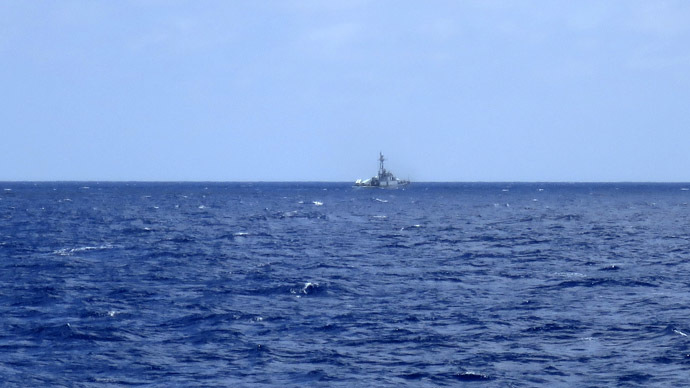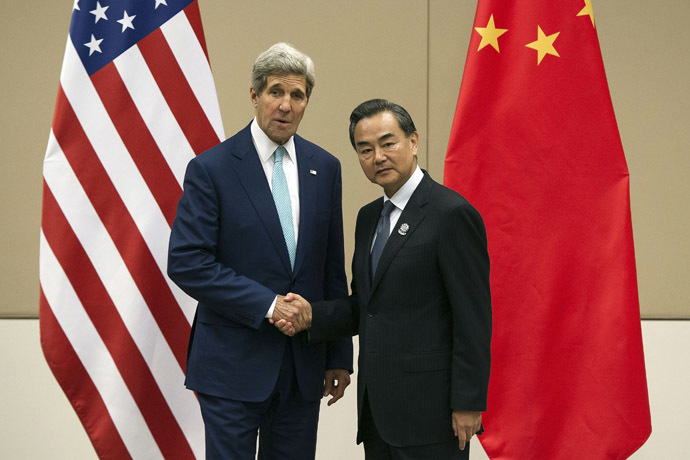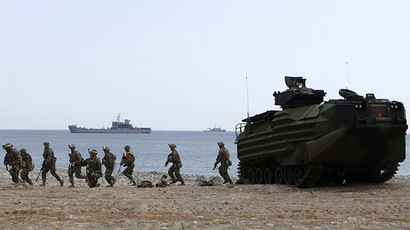US accused of inciting South China Sea tensions

The Chinese foreign ministry strongly questioned the intentions of the United States over the weekend with regards to an Asian territorial dispute that has attracted the opinion of US Secretary of State John Kerry.
Chinese Foreign Minister Wang Yi and his American counterpart were both among the attendees at this weekend’s ASEAN Regional Forum in Nay Pyi Taw, Myanmar, where representatives from 26 countries came together to discuss policy and security issues concerning the Asia-Pacific region. Now in the aftermath of the event, Wang’s office is instructing the US to refrain from interfering in one of the matters in particular that Sec. Kerry spoke of at the forum: the ongoing dispute involving Beijing’s claims regarding the South China Sea and those from other neighboring nations.
“China and the Association of Southeast Asian Nations (ASEAN) are totally able to safeguard well the peace and stability of South China Sea,” the Chinese Foreign Ministry quoted Wang as saying, “in immediate response to the so-called tense situation propagated by some countries over the South China Sea.”
The statement, published by the Foreign Ministry on Monday this week, says that Wang insisted during the multinational conference that China and ASEAN are capable of handling the territorial dispute in calm, yet “he could not understand why some countries out of the region stayed restless to propagate its tense situation.”
"Is it they want to confuse the region? Countries out of the region can reasonably voice their concern, but we disagree with them for coming to the region finger-pointing," he was quoted as saying.

According to AFP, Wang said at the forum that "Some countries outside the region are restless, and stir up tensions,” and even went as far as to ask: “Might their intention be to create chaos in the region?”
The official statement from the Chinese Foreign Ministry neglects to identify the United States by name, but a report by a regional newswire published after the forum said the remarks were intended for the White House.
"By stoking the flames, Washington is further emboldening countries like the Philippines and Vietnam to take a hardline stance against China," China's official Xinhua news agency added in its commentary published this week.
"It is a painful reality that Uncle Sam has left too many places in chaos after it stepped in, as what people are witnessing now in Iraq, Syria and Libya,” the agency added. "The South China Sea should not be the next one."
Last November, Beijing warned Washington not to “meddle” in the maritime affair after the US raised concerns about Chinese plans to put the East China Sea under the control of its air forces. In the months since, the US has flown B-52 bombers over the region in defiance of China’s territory claims, as well as surveillance aircraft, and recently cut a deal with the Philippines that will ensure that American military personnel continue to have a strong presence in the area for at least another decade.
On Sunday, the US State Dept. said in a statement that “With over 40 percent of the world’s seaborne trade flowing through the Asia Pacific, maintaining open sea lines of communication and ensuring freedom of navigation and other lawful uses of the seas are critical for regional security and stability. As a Pacific nation, the United States continues to prioritize maritime security cooperation through the promotion of freedom of navigation, international law, the peaceful settlement of disputes and unimpeded lawful commerce.”














